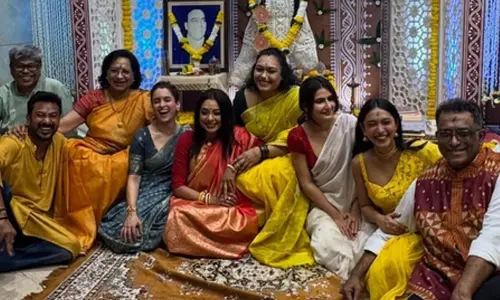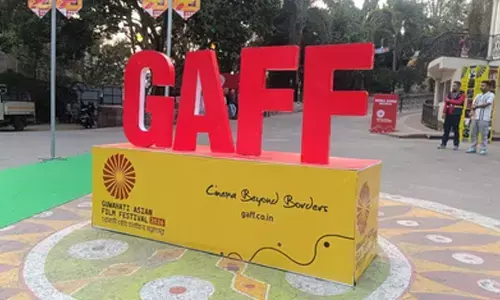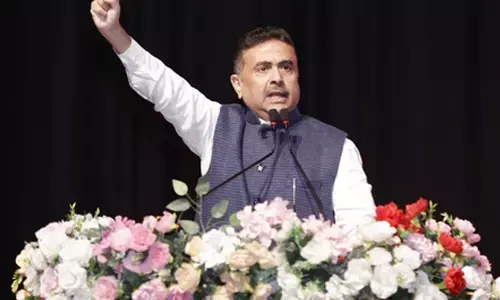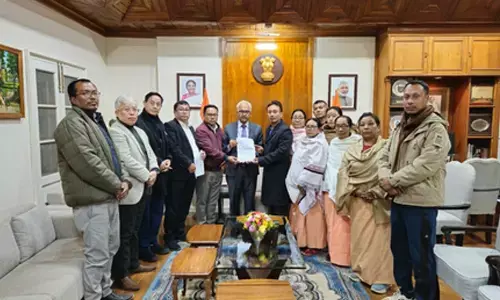Jyeshtha Purnima, a blend of religious devotion
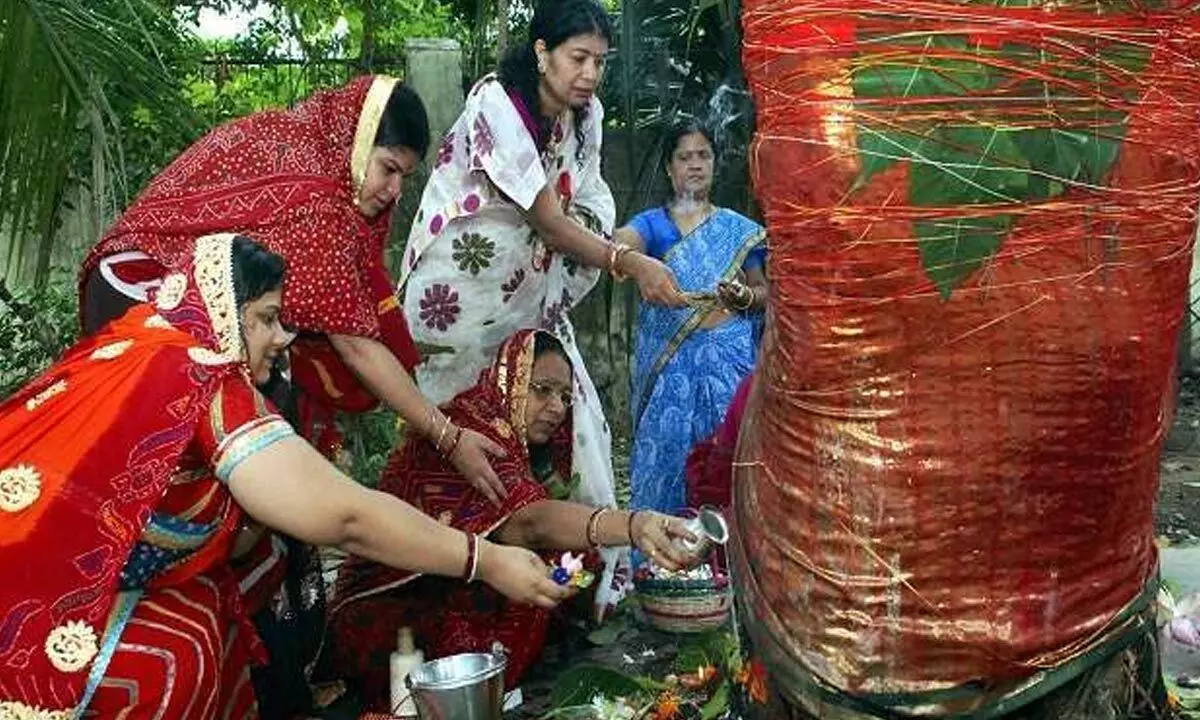
Jyeshtha Purnima, a blend of religious devotion
Jyeshtha Purnima is a significant festival celebrated in Hinduism. It falls on the full moon day (Purnima) in the month of Jyeshtha, which usually corresponds to May or June in the Gregorian calendar.
Jyeshtha Purnima is a significant festival celebrated in Hinduism. It falls on the full moon day (Purnima) in the month of Jyeshtha, which usually corresponds to May or June in the Gregorian calendar. This festival holds cultural and religious importance in various parts of India.
In Hindu mythology, Jyeshtha Purnima is associated with different legends and rituals. One popular belief is that on this day, Lord Vishnu took the form of Lord Jagannath and appeared on Earth. This day is also considered auspicious for Lord Shiva and Goddess Lakshmi.
In certain regions, Jyeshtha Purnima is celebrated as Vat Purnima or Vat Savitri Vrat. Married Hindu women observe a fast and tie threads around banyan trees, praying for the well-being and longevity of their husbands. They perform rituals and listen to the story of Savitri and Satyavan, an ancient tale of devotion and determination.
Additionally, Jyeshtha Purnima is associated with the harvest season. Farmers express gratitude for a good harvest and pray for favorable weather and abundance in the coming year. They offer prayers to their agricultural tools and seek blessings for a prosperous future.
Overall, Jyeshtha Purnima is a significant festival that combines religious, cultural, and agricultural elements, celebrated in various ways across different regions of India.
Jyeshtha Purnima holds several significances in Hindu culture and is celebrated with enthusiasm across various regions. Here are some of its key significances:
Devotion to Lord Vishnu:Jyeshtha Purnima is associated with the appearance of Lord Jagannath, an incarnation of Lord Vishnu, on Earth. Devotees worship Lord Vishnu and seek his blessings for a prosperous life.
Vat Purnima or Vat Savitri Vrat: In many parts of India, particularly in Maharashtra and Gujarat, Jyeshtha Purnima is celebrated as Vat Purnima or Vat Savitri Vrat. Married Hindu women observe a fast and tie threads around banyan trees, symbolizing their husbands. They pray for their husbands' longevity and well-being, following the example of the devoted wife Savitri.
Agricultural Significance:Jyeshtha Purnima falls during the harvest season in India. It marks the completion of the summer crop cycle and the beginning of the monsoon season. Farmers express gratitude for a successful harvest and pray for favourable weather and abundant crops in the coming year.
Spiritual Significance: Full moon days, including Jyeshtha Purnima, are considered spiritually significant in Hinduism. It is believed that spiritual practices such as meditation, chanting mantras, and performing rituals during this time have enhanced benefits and can lead to spiritual growth and purification.
Pilgrimages and Ritual Baths:Jyeshtha Purnima is considered an auspicious time for pilgrimages and ritual baths in sacred rivers, particularly the Ganges. Devotees flock to holy places like Varanasi, Haridwar, and Prayagraj to take a dip in the river and perform religious ceremonies.
Worship of Lord Shiva and Goddess Lakshmi:Jyeshtha Purnima is also associated with the worship of Lord Shiva and Goddess Lakshmi. Devotees offer prayers, perform rituals, and seek blessings for prosperity, wealth, and well-being.
These significances vary in different regions and communities, but collectively, Jyeshtha Purnima represents a blend of religious devotion, agricultural gratitude, and spiritual significance in Hindu culture.










